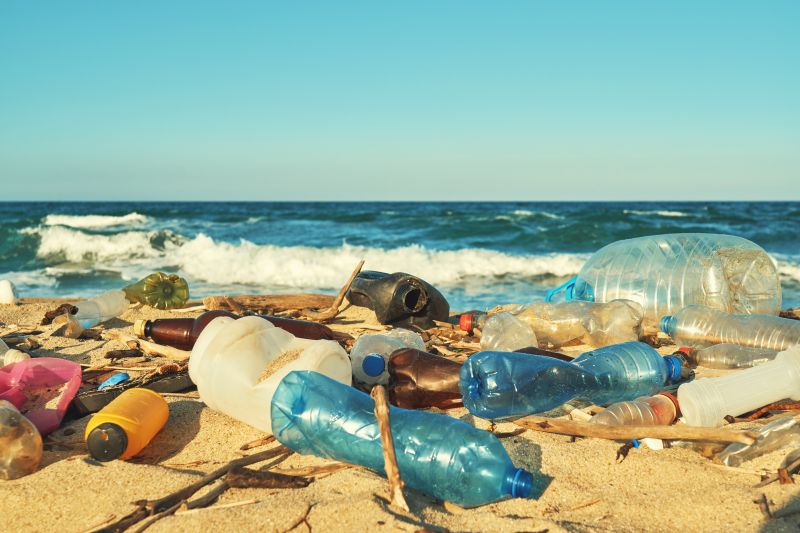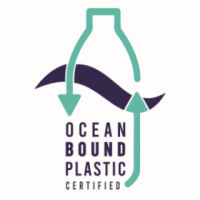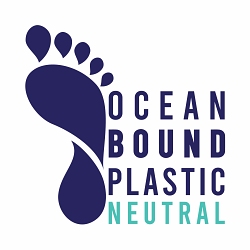Of the 368 million metric tons1 of plastics produced each year, half of which is designed to be single-use, despite the fact that it will never fully decompose. 80% of the plastic in the ocean originated on the land, so stopping the flow of plastic from the land to our oceans must be a priority in the fight against ocean pollution by plastic waste. Ocean Bound Plastic is a plastic waste that is not managed correctly and is abandoned in the environment where it will be transported to the oceans either by rain, wind, tides, river flow and floods.
Collecting this plastic once it enters the ocean is complicated. It is much easier to collect it from the land before it reaches the ocean. As much waste plastic is non-recyclable, and even that which is recyclable can be time consuming and costly to collect and process, there was no financial incentive to individuals or businesses in collecting it.
The OBP Certification Program was co-developed by the NGO Zero Plastic Oceans and Control Union to address this problem, by adding value to Ocean Bound Plastics. In doing so the scheme aims to protect oceans from the continuous leakage of ocean bound plastics (OBP) from land-based activities. Certification against the Ocean Bound Plastic standard can cover any point across the full process from collection of Ocean Bound Plastic through to recycling into new products, or through to proper waste treatment and creation of neutralization certificates for non-recyclable plastics, creating jobs and encouraging good environmental practice.
Vincent Decap – Co-founder of Zero Plastic Oceans (ZPO)
“The Ocean Bound Plastic (OBP) Certification Program supports the removal of commercially recyclable and non-commercially recyclable OBP to prevent it from becoming oceanic plastic litter.
Organisations can use the standards of the program to make recycled OBP content claims or OBP Neutral Claims or to sell OBP Credits (for plastic footprint offsetting).
The program is the first third-party certified Ocean Bound Plastic Program, bringing transparency and trust in the OBP market, and encouraging more OBP to be removed from the environment.”
 |
 |
Getting certified against the OBP scheme allows businesses to:
If you would like to find out more about certification against the OBP schemes, and how they could be of benefit to your organisation please contact us. Alternatively sign up to our free webinar covering this and other plastic certifications, taking place on 19th May 2021.